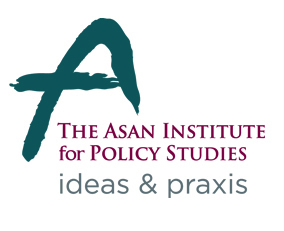Nuclear Weapons | Other Publication
International Nuclear Security Peer Reviews: Making the IAEA IPPAS General and Sustainable
DownloadAs countries enhance their commitments to strengthening nuclear security, measuring their implementation of those commitments grows in importance. A peer review system, as offered by the International Atomic Energy Agency (IAEA) through its International Physical Protection Advisory Service (IPPAS), can increase accountability on nuclear security implementation and build confidence that states are meeting their commitments. However, meeting the full potential of the IPPAS will require reforming and strengthening the service.
This report reviews the IPPAS process and outlines the necessary elements to make the service more generalizable and sustainable. It also provides recommendations that, if implemented, would strengthen the service.
The authors suggest that countries complete an IPPAS review cycle every four to six years. To sustain this level of activity, the authors recommend increasing the capacity of the IAEA for IPPAS missions, creating a certification process for experts serving on IPPAS teams, and expanding information sharing about IPPAS results. Additional recommendations include identifying incentives for operators to make nuclear security more effective and learning from the aviation industry and how it improves safety through peer reviews performed by the International Civil Aviation Organization.
The authors conclude that to make generalization of the IPPAS possible, all stakeholders—The IAEA, states, industry, and nongovernmental organizations—should contribute to and support the strengthening of the service and its required infrastructure.
About the Authors
Anita Nilsson is president, AN & Associates, and a senior associate at the Partnership for Global Security. Dr. Nilsson is the former director of the IAEA’s Office of Nuclear Security and held several positions within the Swedish government and nuclear industry.
John Bernhard is a senior associate at the Partnership for Global Security and former Danish Ambassador to the IAEA. Ambassador Bernhard has served in various positions within the Danish Ministry of Foreign Affairs, including in ambassadorial posts in Venezuela, Spain, the Netherlands, and Austria.
Caroline Jorant is president, SDRI Consulting and a senior associate at the Partnership for Global Security. Ms. Jorant is the former director of Non-Proliferation and International Institutions at AREVA and held various positions within the French government and nuclear industry.
About NSGEG
The Nuclear Security Governance Experts Group is a multi-sector coalition of experts from 11 countries working to make today’s nuclear security regime more cohesive, responsive, and robust by 2020. The NSGEG is a joint project of the Stanley Center, the Partnership on Global Security, and the Asan Institute for Policy Studies.
Partners


Related Publications
Nuclear Weapons
Nuclear Security Checklist Results Demonstrating Implementation of IAEA Information Circular 869Nuclear Weapons
International Nuclear Security Peer Reviews: Making the IAEA IPPAS General and SustainableNuclear Weapons
Safeguard the World’s Nuclear ArsenalsRelated Events
December 7, 2016
NSGEG Report Launch and Press BriefingDecember 7, 2016
NSGEG ReceptionDecember 6, 2016
The Outlook for Strengthening Nuclear Security